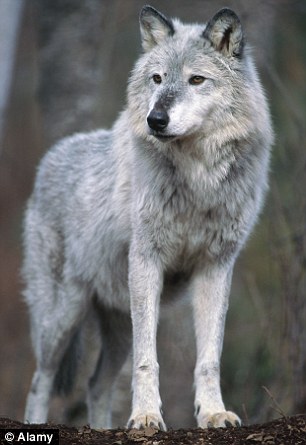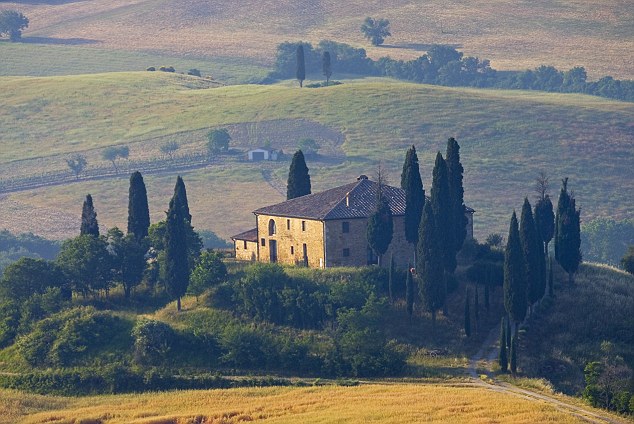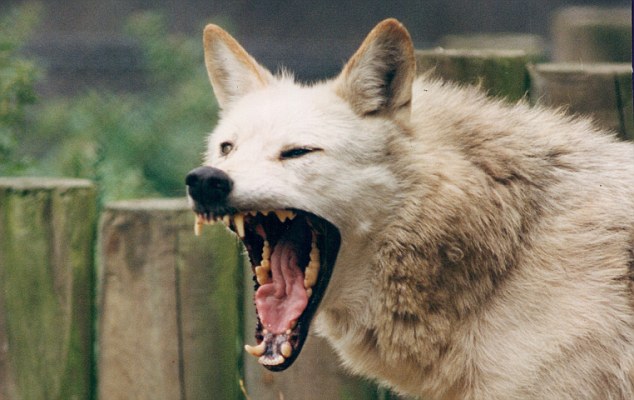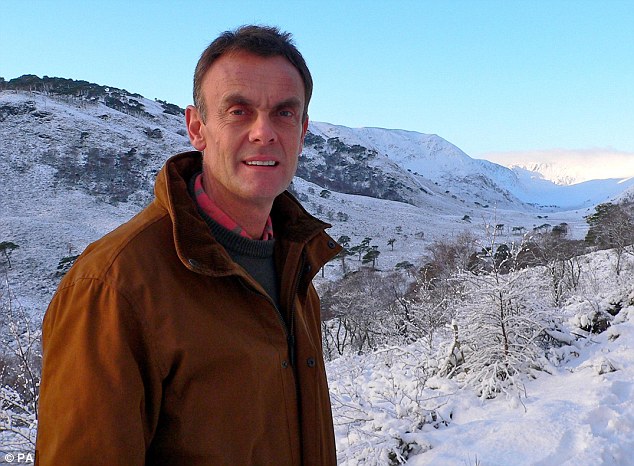- Eight endangered wolves found dead since the beginning of November
- Killers left carcasses in village piazzas and on the steps of a theatre
- Sheep farmers thought to be behind the slaughters
- Decimated sheep flocks have ruined many farmers in the area
- Since being reintroduced, Tuscany’s wolf population has grown to 230
- Deaths have sparked a row between conservation groups and local farmers

Its medieval hilltowns, scorched valleys and free-flowing Chianti have made Tuscany a hit with British expats and tourists. But in recent weeks the peaceful vales have been rocked by a predatory serial killer.
Eight endangered native wolves have been found dead since the beginning of November, with three fresh corpses emerging in the last week alone.
In an apparently political gesture, the vigilante killer, or killers, have displayed the carcasses where they will be widely seen, in village piazzas, and, in one case, on the steps of a theatre.
All but one of the protected animals was shot, while the others were strangled. The slaughters are thought to be the work of an exasperated sheep farmer carrying out a personal vendetta after attacks on his flock.
Vet Marco Aloisi, director of a local wildlife recovery centre, said that placing the wolves’ bodies on public display appeared to be ‘a protest’.
Wolves were reintroduced to Tuscany from the mountains of the Abruzzo in the 1990s, using EU funding.
MFI furniture millionaire Paul Lister has similar plans to reintroduce wolves to his estate in Alladale, Scotland, despite the fact that they became extinct in the UK in the 17th century.
Wolves in Italy have been growing in numbers, as illegal hunting by farmers has become less common, and there are now an estimated 230 in Tuscany.
The packs usually live high in the Apennine mountains, but are driven down to farmland by cold weather or when they are unable to find enough prey.
In the past two years they have ventured lower than ever before. Wolves were responsible for 1000 attacks on sheep, cattle and horses in 2012, according to official figures.
Since then, a surge in the marauding attacks has decimated flocks in the coastal Maremma district.


In some areas production has halved, bringing farmers to the brink of ruin.
Regional projects to limit damage caused by wolves, including traps and specially trained dogs have largely failed.
Many sympathise with the farmers’ frustration.
Local MP Luca Sani, chairman of the Agriculture Committee of the Lower House of Parliament, said: ‘Killing wolves is a matter of great concern. However, it would be irresponsible to put our heads in the sand and not recognise that this action is a worrying sign of the exasperation felt by our farmers.’
Conservation groups have organised protests, calling for swift justice. James Bottinelli, spokesman for the A law Against Vivisection group in Grosseto, said: ‘Anyone who kills an animal is a criminal and must be stopped, but particularly in a case like this, where we are dealing with a serial killer.’


